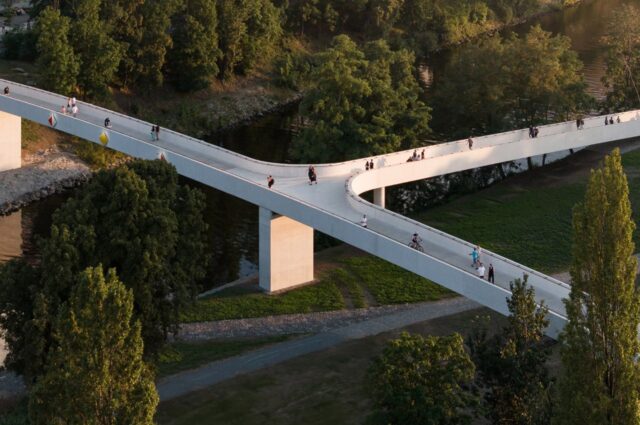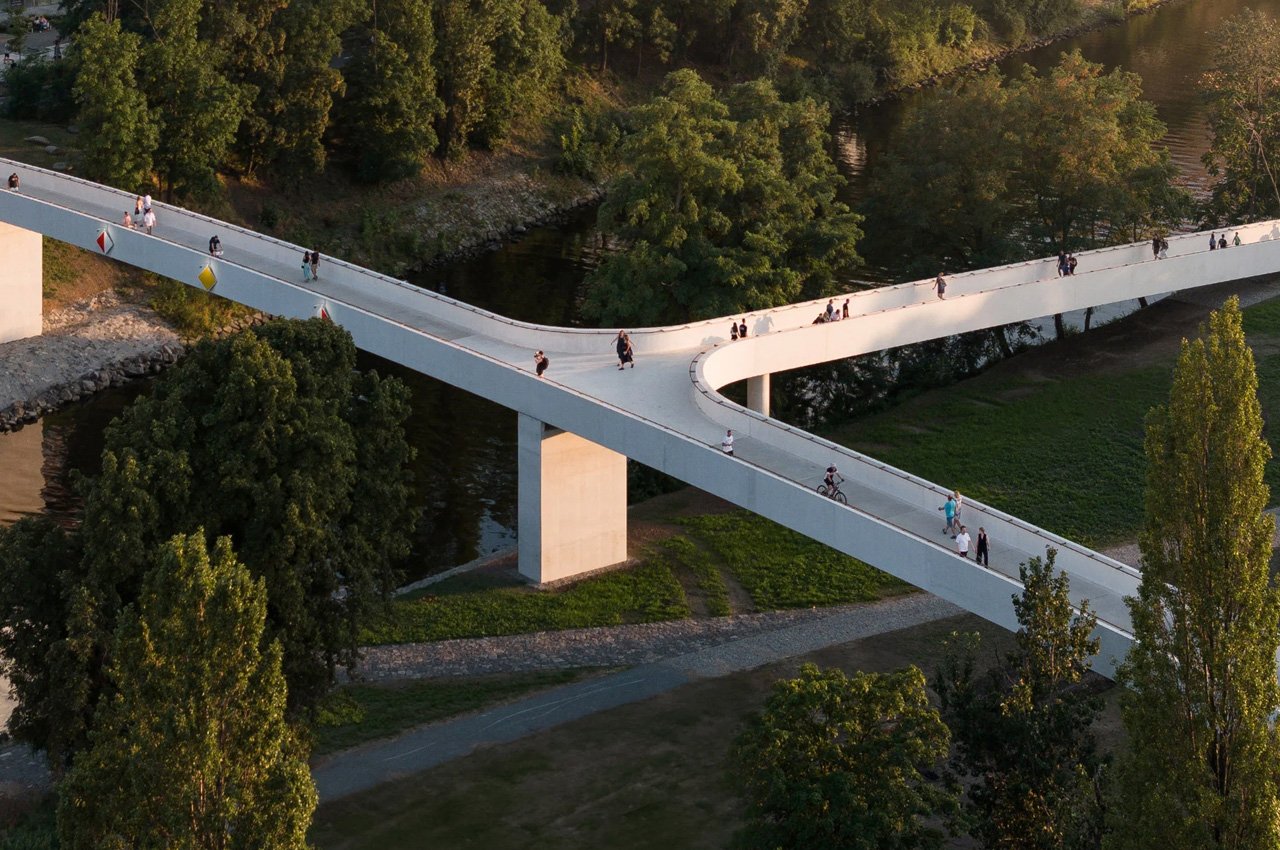
A minimalist and sculptural bridge was recently constructed across the River Vltava in Prague. Designed by architects Petr Tej and Marek Blank in collaboration with engineer Jan Mourek, the bridge spans 300 meters and is meant to resemble marble. The expansive and sleek concrete bridge connects the banks of Prague’s Holešovice and Karlín districts, giving it the nickname HolKa. The structure also includes a ramp to Štvanice – a tiny island that houses a park and sports areas. The bridge is dedicated to the use of pedestrians and cyclists.
Designer: Atelier Bridge Structures and Blank Architekti
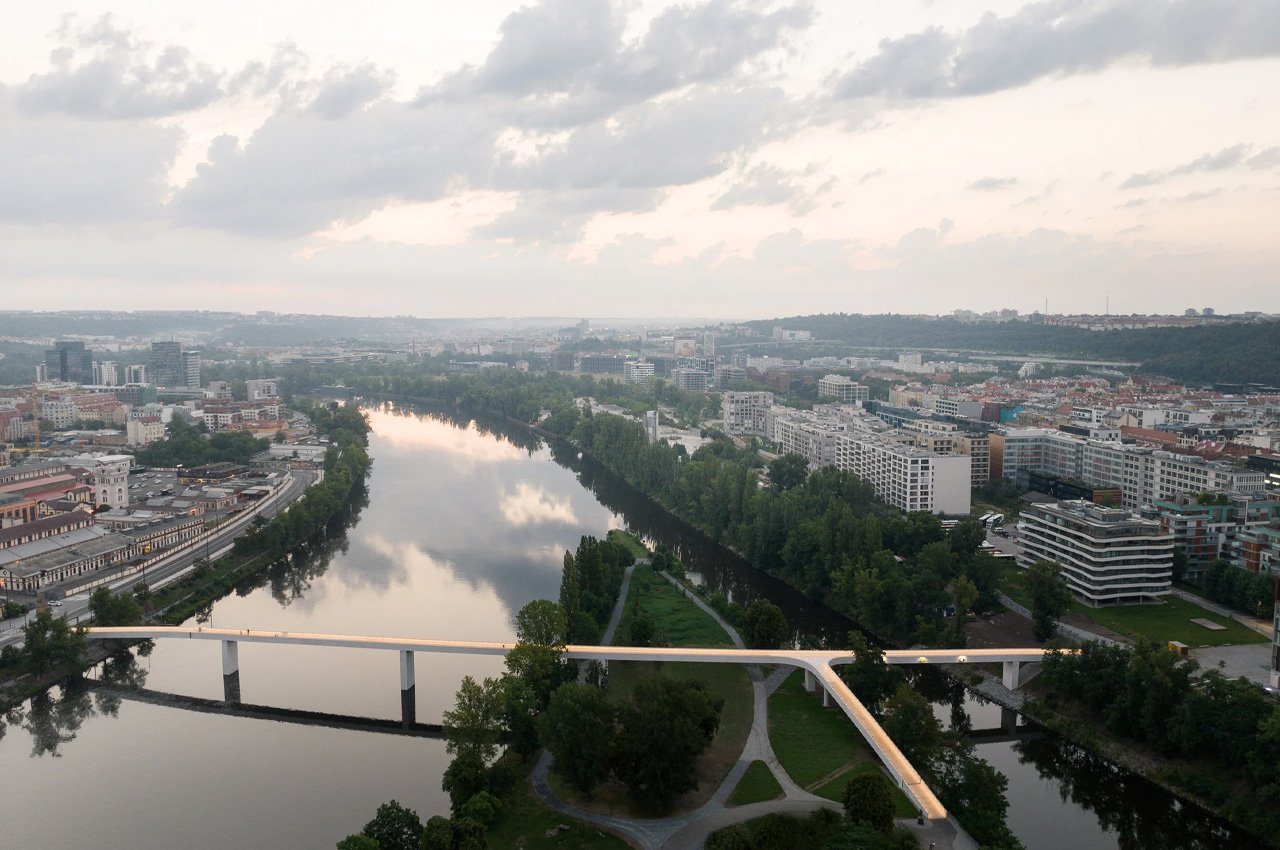

Tej and Mourek work together under Atelier Bridge Structures, while Blank is from Blank Architekti. Tej elaborated that both Holešovice and Karlín are two entirely different parts of the city, and the park on Štvanice ensures that urban wilderness and nature are easily accessible to both districts, hence the ramp was incorporated on the bridge. The bridge features a mesmerizing curved design that is marked by a continuous slender beam of white concrete with a subtle H-shaped profile.
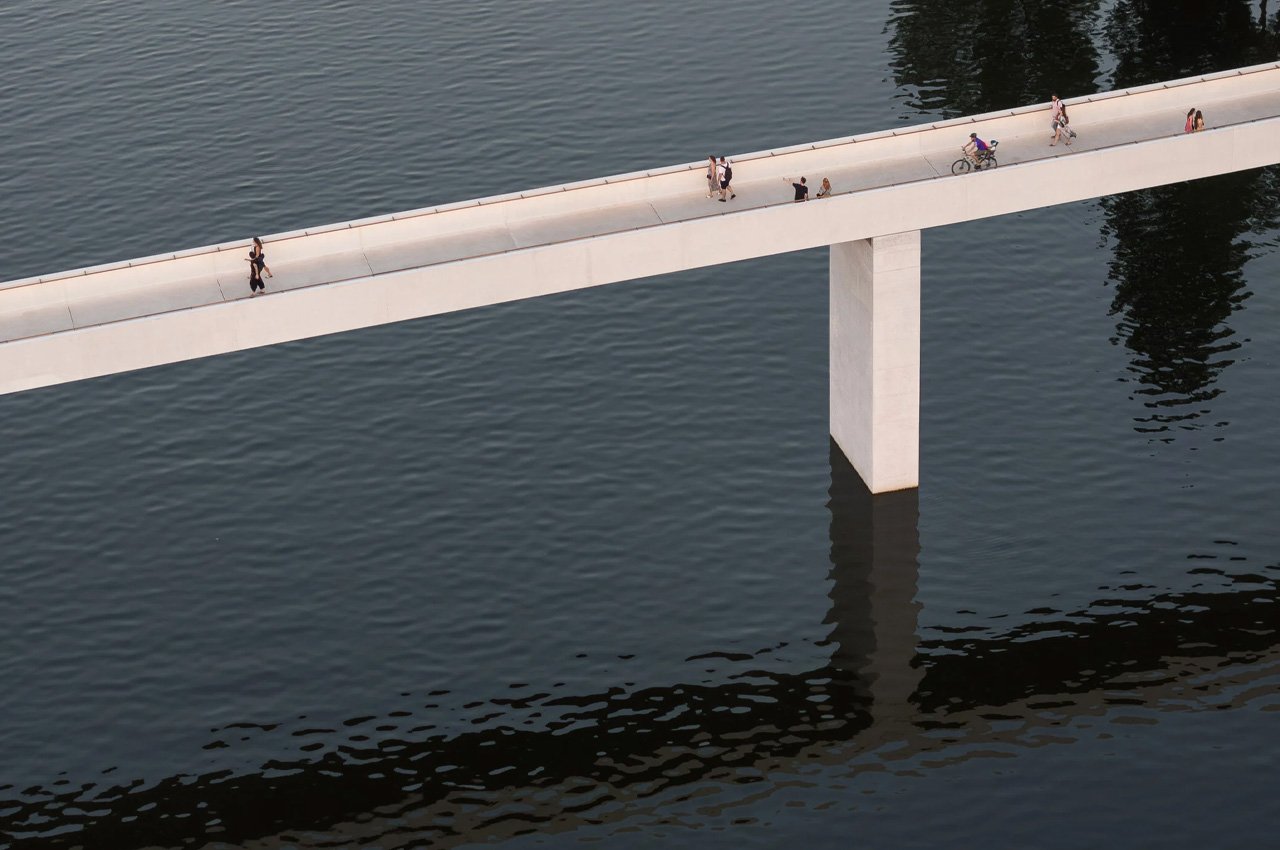
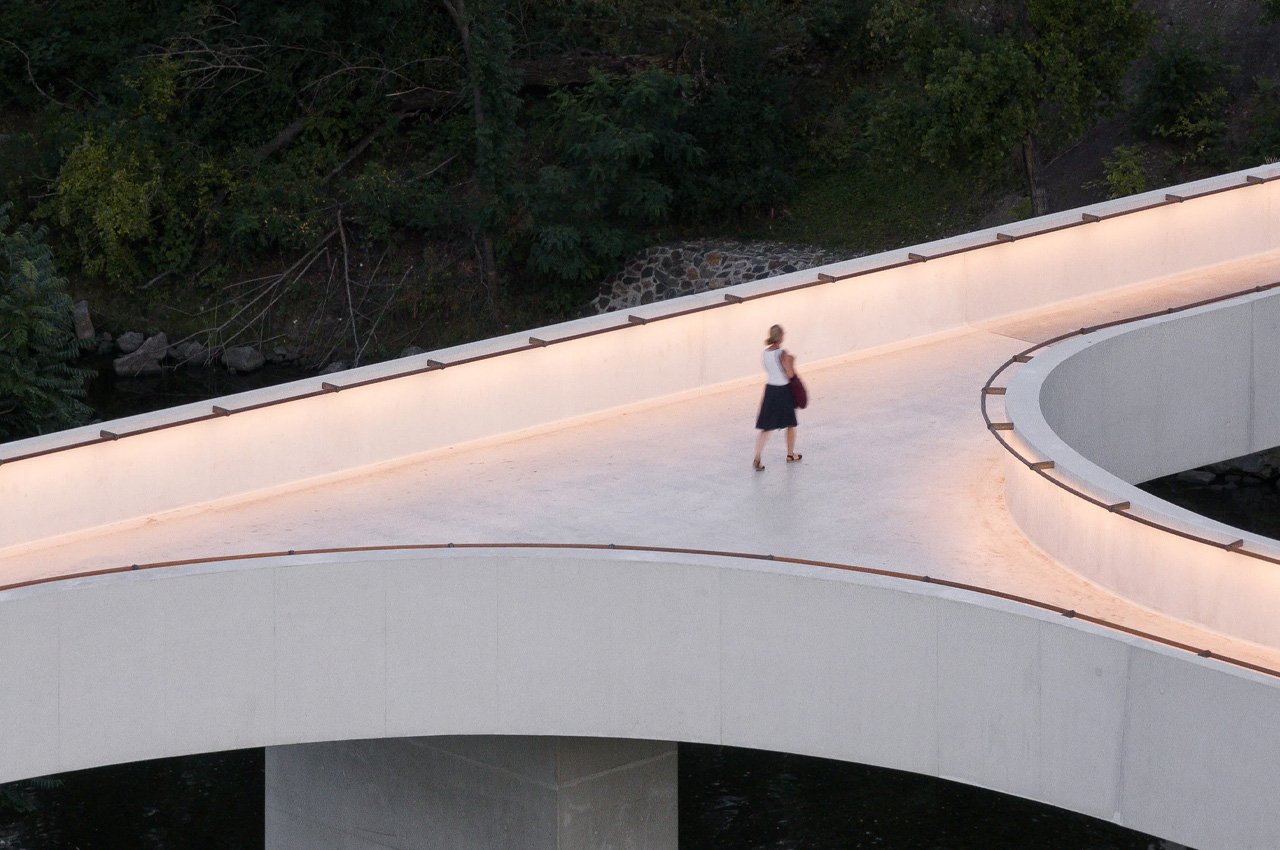
The bridge brings to mind the image of a solid white marble sculpture! It is supported by embankment abutments and piers, with a hydraulic system that ensures the bridge can be raised if any flooding occurs. The design of the bridge is reminiscent of the other low-lying bridges you may come across in Prague, which are designed with the intention of minimizing the disruption of the views of the city.
“The silhouette of the bridge reacts to the Prague skyline in particular by the fact that its structure is not high, with no pylons and tie rods that would disturb views of the city,” said Tej. “All Prague bridges are structures with a lower structure, and the choice of full parapet beams responds to parapets on most Prague bridges. The character of the surface should evoke white marble – the bridge should act as a large sculpture in the city, a white, minimalist line,” he concluded.
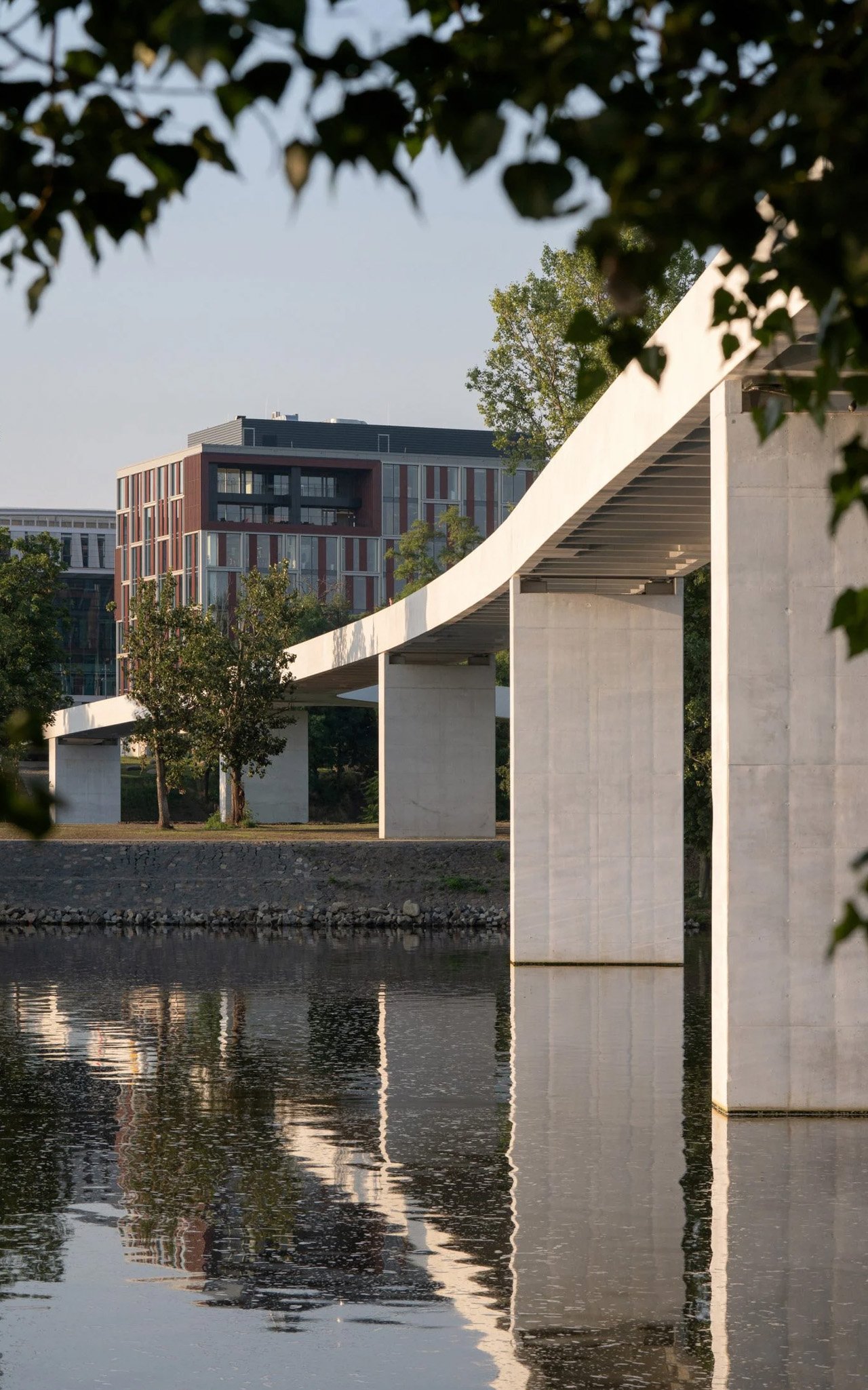
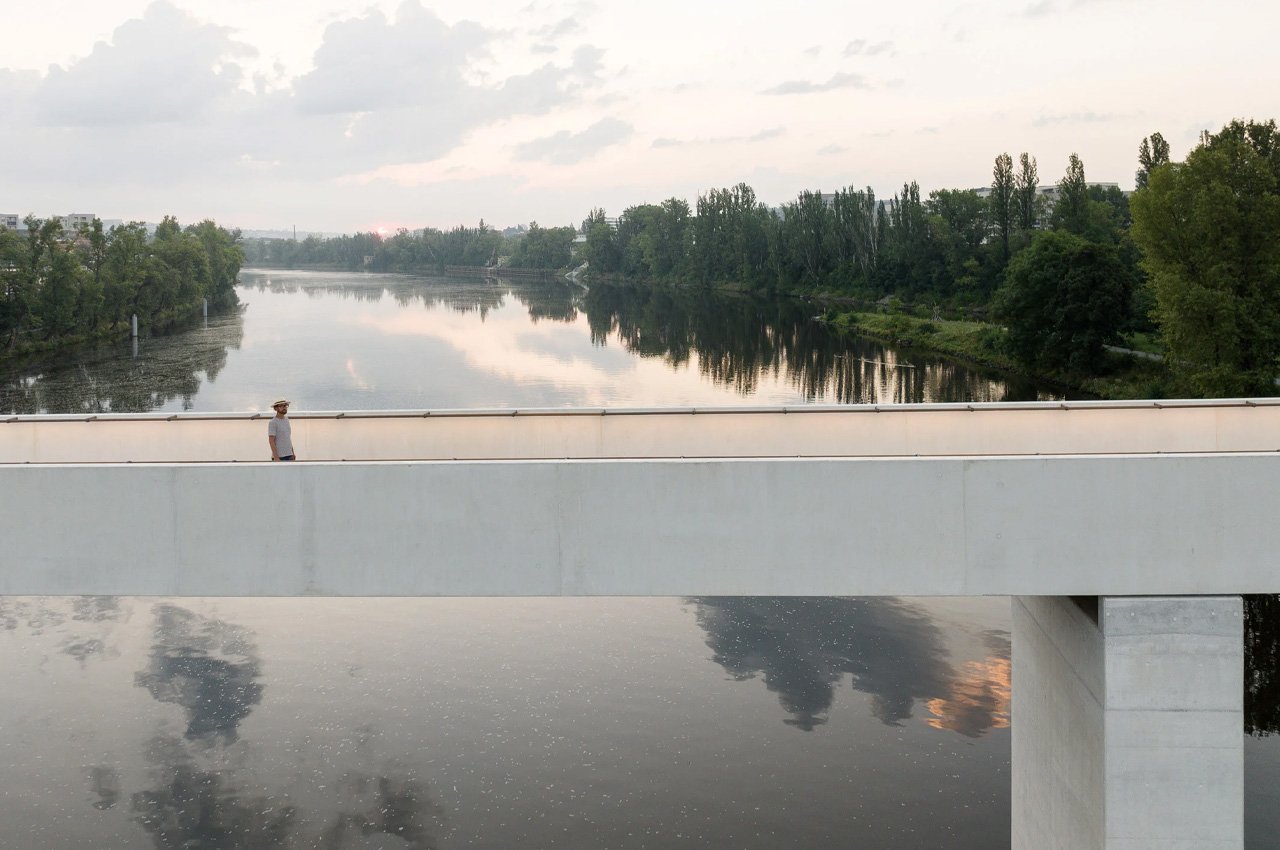
The sides of the bridge are marked with fluted metal handrails, that finish at the end with bronze animal sculptures – making a reference to the history of the place. A sculpture called The River by Jan Hendrych is also placed at the foot of the ramp on Štvanice.
“The animal motifs are actually a kind of monument to the animals that suffered on different sides of the bridge. There was a cavalry regiment on the Karlín side, hence the horses, hare hunts were held on Štvanice island, hence the hares and the market area in Holešovice was originally used as a slaughterhouse, hence the bulls,” said Tej.
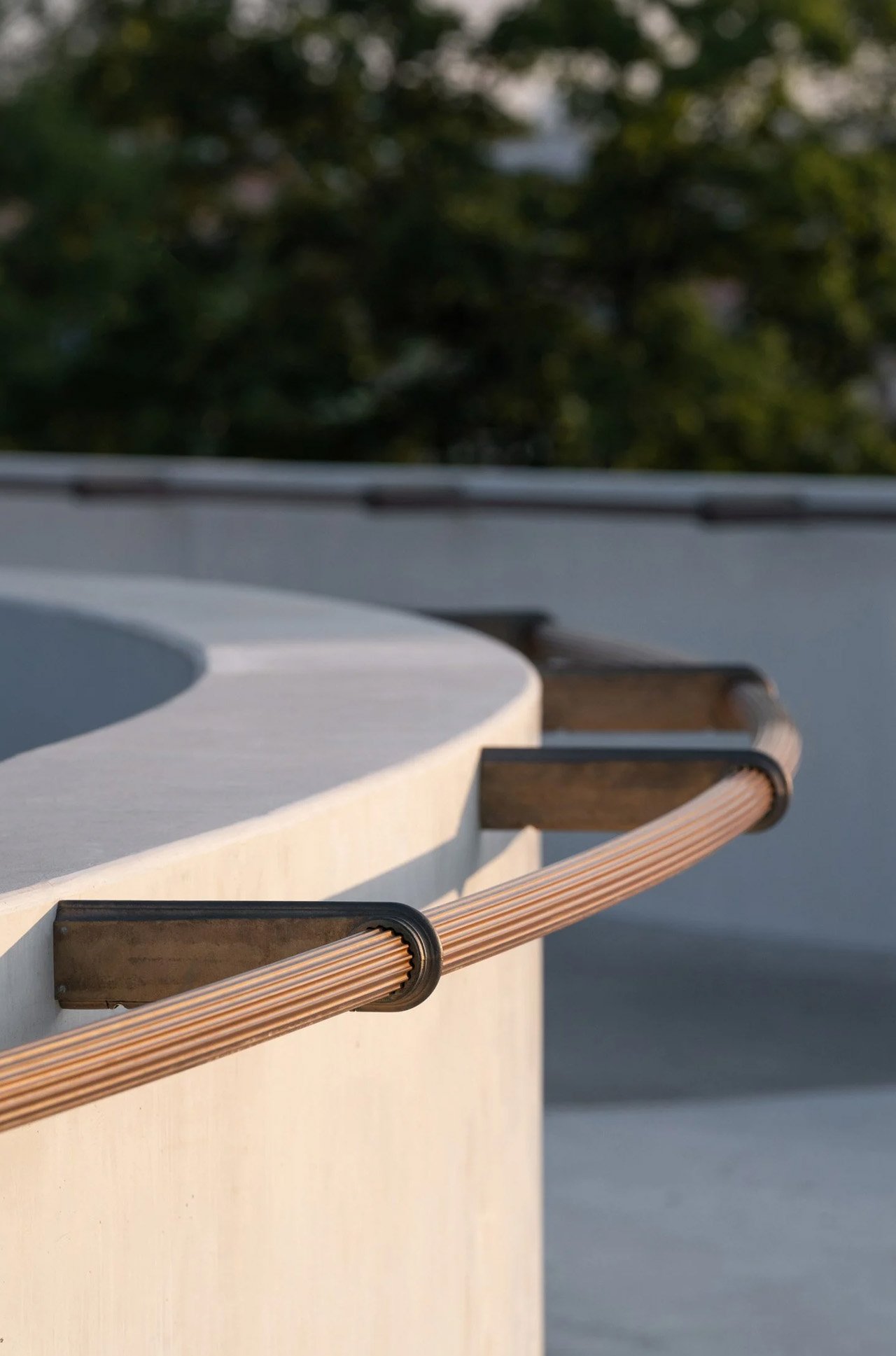
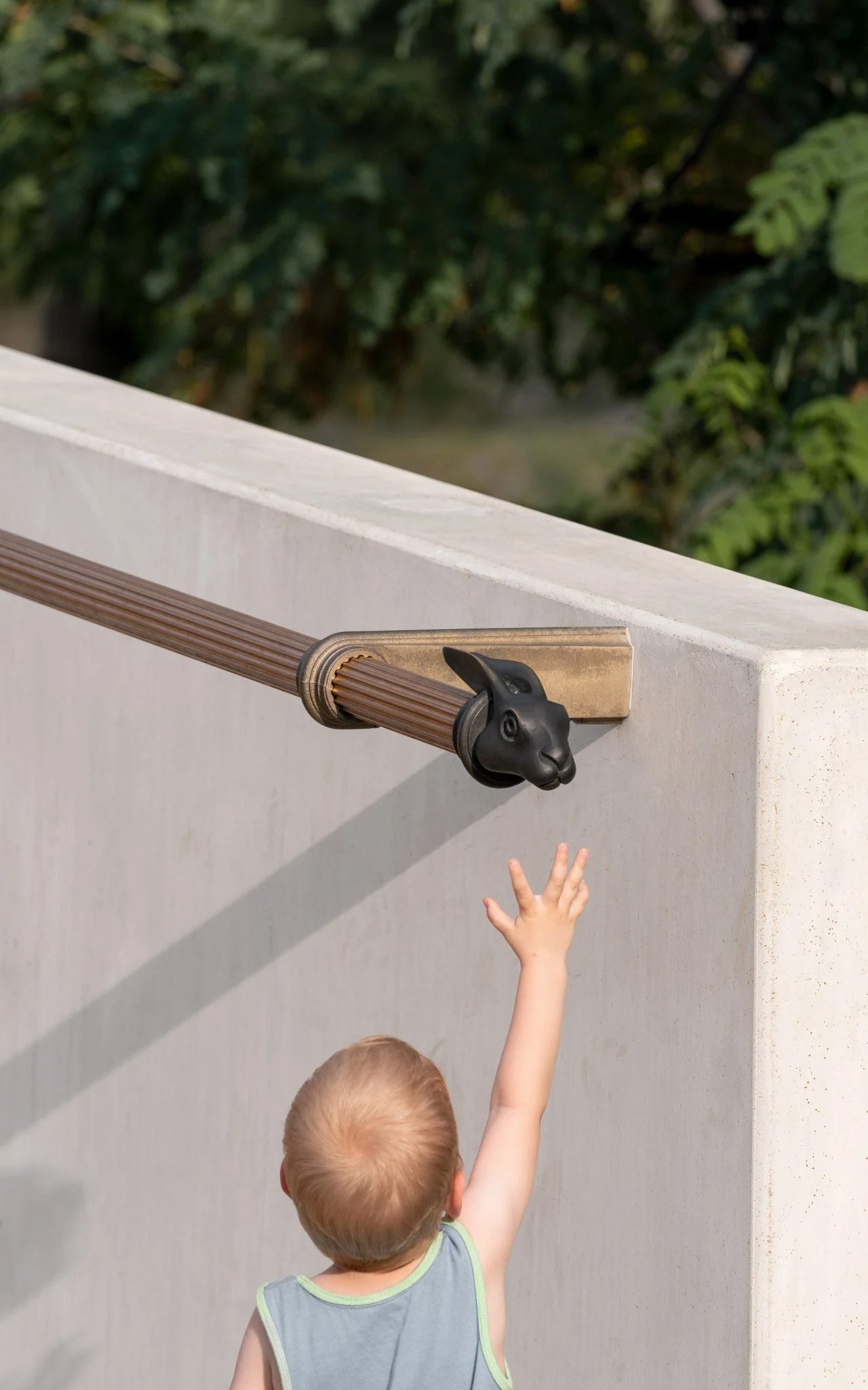
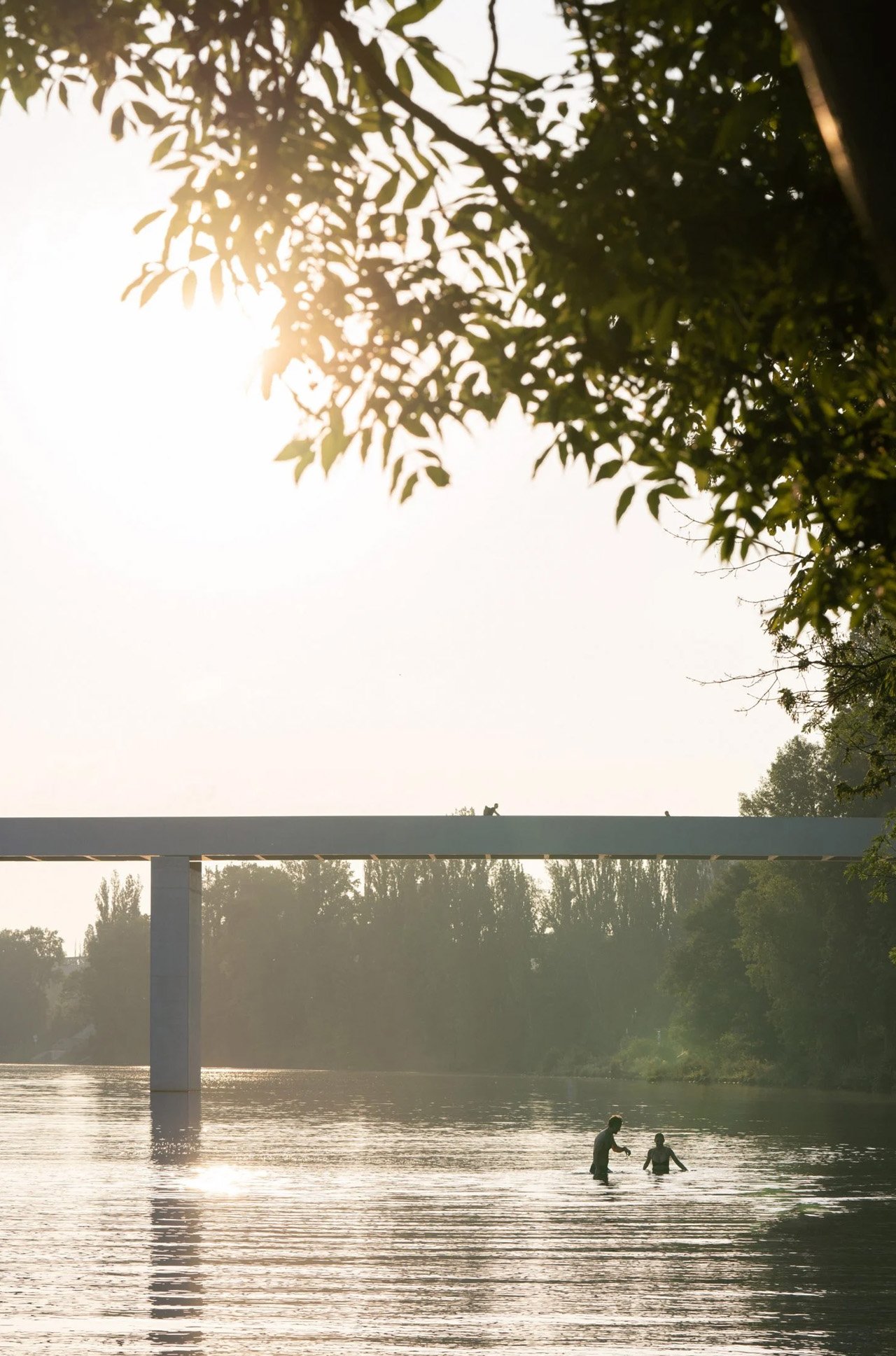
The post Minimalist Sleek Concrete Bridge In Prague Is A Sculpture Connecting The City To A Small Island first appeared on Yanko Design.

